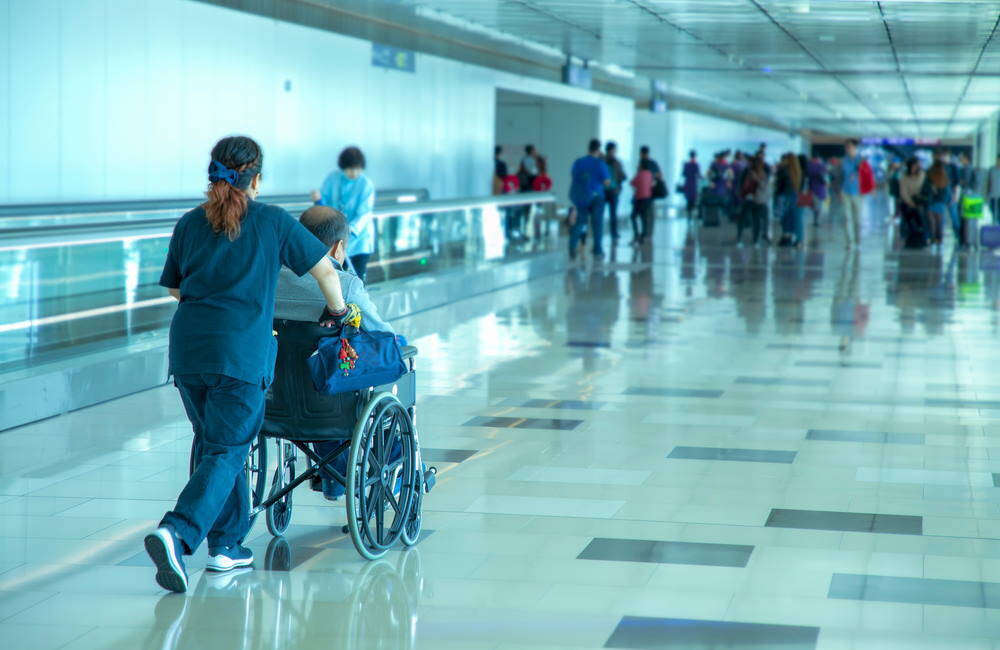 Inflight medical service is medical assistance given to patients during transportation by plane. In an emergency situation, it typically involves keeping patients stable on the trip to the hospital. In non-emergency medical transport, flight nurses provide care for patients through the airports and on the plane.
Inflight medical service is medical assistance given to patients during transportation by plane. In an emergency situation, it typically involves keeping patients stable on the trip to the hospital. In non-emergency medical transport, flight nurses provide care for patients through the airports and on the plane.
Flight nurses and non-emergency medical transport (NEMT) provide an air ambulance alternative. Patients get the medical support and assistance they need at a fraction of the cost. They offer inflight medical services to those who can’t fly on their own or prefer not to, including those with chronic conditions, injuries and age-related disabilities.
What is a Medical Travel Companion?
Why People Need Air Medical Services
People require air medical services for a variety of reasons. But they all fall within two main categories: emergency transport and non-emergency transport.
Emergency Inflight Medical Services
Emergencies involve people who have been in accidents, natural disasters or some other situation where they needed to dial 9-1-1. In this case, air medical services may involve a helicopter. Medical personnel onboard treat a patient with the goal of keeping them stable until they reach a care facility.
The team of professionals providing medical services in an emergency situation can include emergency medical technicians (EMT) and paramedics trained to quickly assess an injury and determine the best course for treatment during the flight. In these cases, life support care is the main goal.
Emergency vs. Medical Transport
Non-Emergency Inflight Medical Services
It’s far more likely that people will use air medical services in a non-emergency medical transport situation. A NEMT company such as Flying Angels provides flight nurses who travel on commercial airlines with their clients. They coordinate the patient’s journey, including making reservations and calling ahead to airports and airlines to ensure they get all the services available for their client.
Reasons for needing NEMT can include a wide variety of situations.
- Older people who want medical assistance while flying on vacations, to family reunions or to relocate to a new area
- People who have suffered an injury while on vacation and want medical care for the flight home
- Those with chronic conditions that make it difficult to move through an airport or getting on and off an airplane.
- Patients flying to see a specialist in another part of the country
Whatever the case, flight nurses provide expert care, starting from when the client leaves home until they arrive at their destination. They manage the client’s medications and medical equipment as well as help them move quickly through security and onto the plane. Flights nurses have experience working in emergency situations. They also have training in providing medical care at high altitudes.